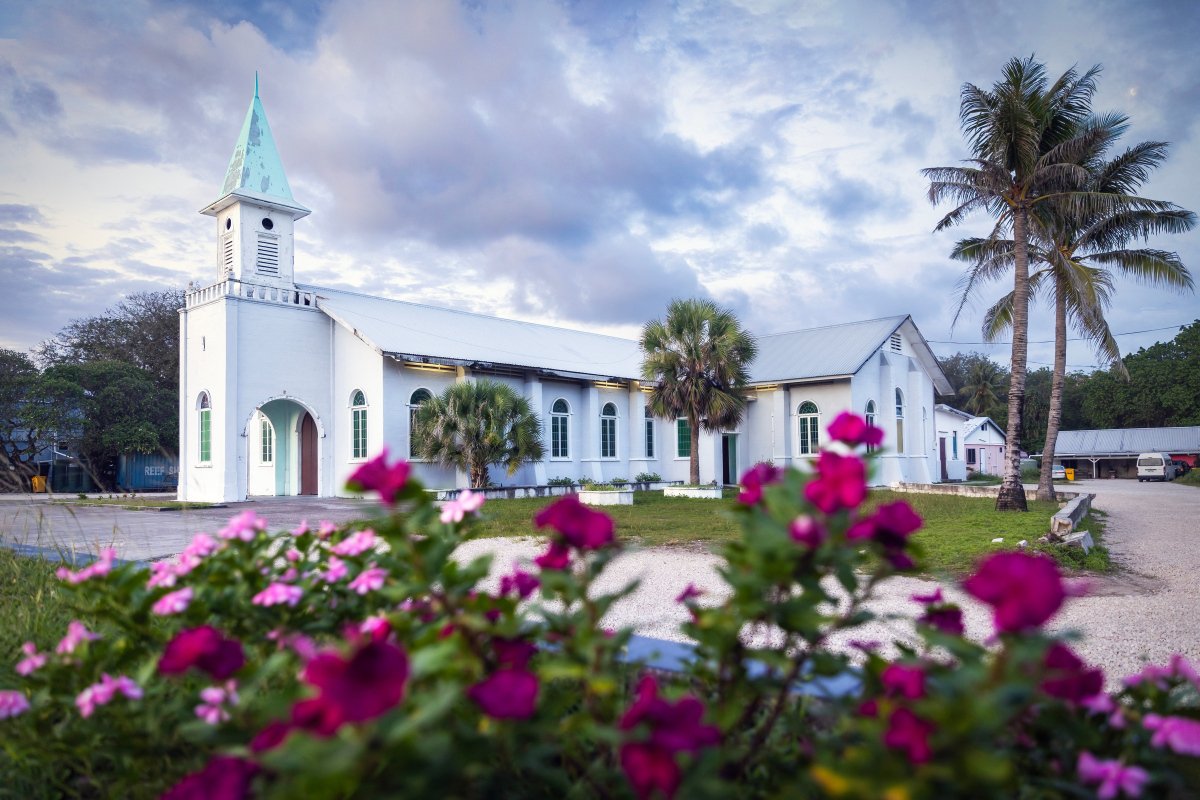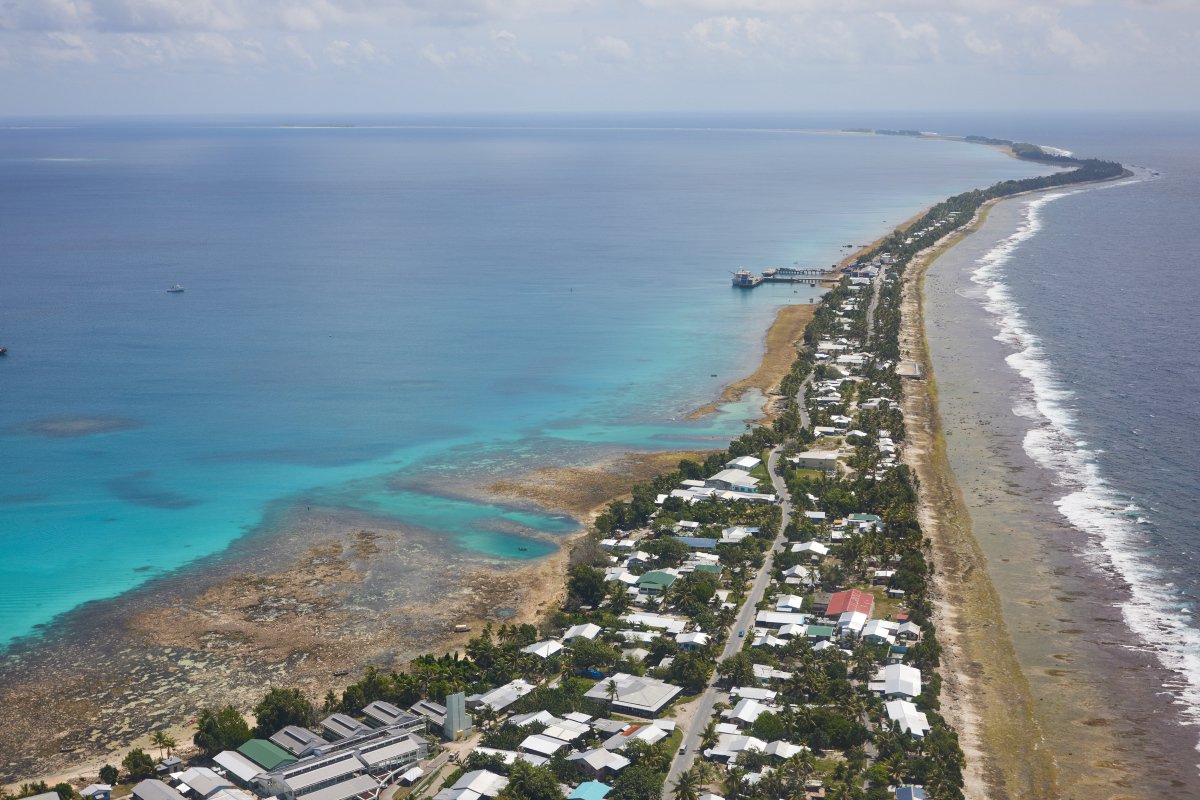AMPLIFYING PACIFIC AND TIMOR-LESTE VOICES IN SOCIAL PROTECTION RESEARCH
Amplifying Pacific and Timor-Leste voices in social protection research
By Kate Bevitt, Kate Lanyon and Matt Allen
Read the easy read version of this blog.
Research by Pacific authors and organisations, grounded in local knowledge and cultural context, contributes vital insights to social protection discourse.
Yet publications from Pacific researchers make up only a small fraction of the published literature. This significantly impacts how the social protection narrative in the region is shaped and framed.
Supporting more Pacific-led research and elevating local perspectives in social protection research is a key recommendation of the Evidence Review: Social Protection in the Pacific and Timor-Leste.
To explore this further, we spoke with three Pacific experts about how these goals might be achieved and why local voices matter.
Perspectives on social protection
The research, produced by the Australian Government’s Partnerships for Social Protection program with research agency Sustineo, examined 242 publications to assess the current evidence base and its contributors.
A significant finding is that most literature on social protection in the Pacific and Timor-Leste is published by multilateral organisations, with a primary focus on government-led systems. These studies often pay less attention to community-based social protection mechanisms and the interplay between the two systems.
In contrast, Pacific organisations and authors tend to focus on understanding the intersections and possible complementarities between government and community-based systems, as well as the value of these two approaches.
This difference in research priorities reflects diverse understandings of social protection.
“There are different kinds of social protection systems happening here [in the Pacific region]: by the states, civil society organisations, and the communities themselves,” says Professor Steven Ratuva, Pro-Vice Chancellor, Pacific at the University of Canterbury.
Professor Ratuva calls for more recognition of the significance and dynamism of existing systems that have “kept communities going despite a crisis here and there”.
“These local social protection systems evolve over time; they’re not stuck in some historical mode in the past.”
The language used to describe social protection shapes the discourse, with Professor Ratuva noting the dichotomy between ‘informal’ and ‘formal’ social protection.
“Originally, anything that wasn’t related to money, institutions or the state was informal.
“When in fact, within communities, some of these are formal in which they’re coming from the formal structure within the communities.”
Learning from other disciplines
While the Evidence Review found relatively few publications by Pacific authors on social protection, many Pacific scholars are researching related topics under different labels.
“A lot of people have been working in social protection, although it’s not called ‘social protection’ as such,” says Professor Ratuva.
“Like those working in marine resources, environment and community sustainability, disaster responses, forestry, and infrastructure. There are components of social protection within them."
Capturing this research and recognising its relevant to social protection is vital, according to Professor Ratuva.
“[We could] put them in a social protection ‘box’ to make them more visible. It would also be good to connect them [the researchers].”
More transdisciplinary and interinstitutional conversations are needed to achieve this, he stresses.
“The way social protection has been imagined and articulated is very disciplinary based.
“So that's where the bigger conversation comes in, to see where people are coming from.”
He suggests that social protection research in the Pacific should involve people trained in fields like ethnography, social anthropology and sociology to fully “understand the human factor on the ground”.

A Nauru church. Photo by the Australian Defence Force.
Local voices and knowledge sharing
The Evidence Review used a systematic search process, screening over 7,000 documents.
While comprehensive, this approach may have missed some Pacific-led publications, partly due to local publishing preferences or the use of languages other than English.
“Some of the important work that are relevant for our communities are not viewed as publishable in mainstream or highly rated journals,” explains Dr Litea Meo-Sewabu, Associate Professor in Social Work and Communities at Western Sydney University.
“This work is then published in journals that do not make the cut when conducting a systematic search. Therefore, you won't really get to see that work.”
To address this issue, Dr Meo-Sewabu emphasises the need for avenues to amplify Pacific voices.
“It's about finding a platform where these kinds of voices can be heard and are accessible to communities where we can make a difference.”
One way to do this is by building an evidence base on the successes of community-based social protection systems.
“It would be great to have a collection of stories of what has worked across the Pacific,” suggests Dr Meo-Sewabu.
Similarly, the review found there is a cross-learning opportunity for countries in the region to share their social protection lessons, particularly those countries with more developed government systems.
Supporting Pacific-led research
A key recommendation from the research is to support and promote Pacific and Timor-Leste organisations and individuals in contributing to the evidence and discourse on social protection.
“A lot of times it's just the outside voices speaking on behalf of Pacific; they can be extractive and misrepresent Pacific voices. It's time that we have more Pacific voices speaking about what's right for us,” says Dr Meo-Sewabu.
“I like it when we all come together, and there's people working together, Pacific and non-Pacific, to actually talk about this.”
Greater collaboration between donors and Pacific universities could help achieve this goal, suggests Josephine Kalsuak, Team Leader Mainstreaming and Capacity Building at the Pacific Community.
There can be multiple existing pathways to strengthen Pacific led research.
For example, utilising the existing mechanism of Pacific government, intergovernmental, civil society, and academic institutions.
“One approach is working with Pacific academic institutions – like the University of the South Pacific, Fiji National University, Solomon Islands National University, and Vanuatu National University.
"By using the existing education providers, it will provide an enabling environment that will encourage Pacific scholars to develop Pacific-led research in social protection.”
Ms Kalsuak emphasises that Pacific Island academic institutions can help foster research that is grounded in Pacific culture, employing local ways of knowing and doing.
“Pacific higher education providers should be encouraging their students in the social work and social science discipline to develop research around social protection.”
This will amplify local voices and experiences, contributing to social protection research and policies that are informed by local knowledge and cultural context.
Disclaimer: Permission to use these images has been granted by the Australian Government through the Department of Foreign Affairs and Trade. The views expressed in this post are that of P4SP alone and are not necessarily the views of the Australian Government.



